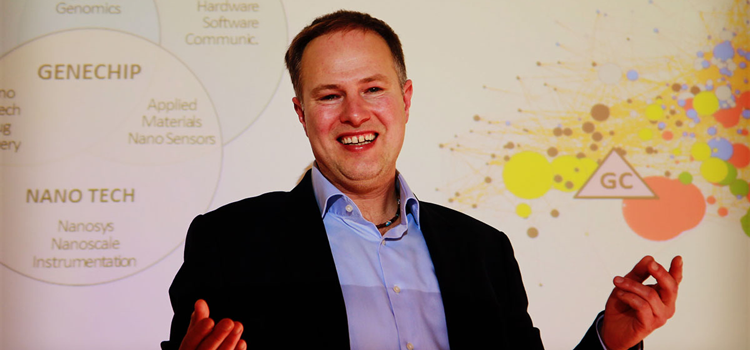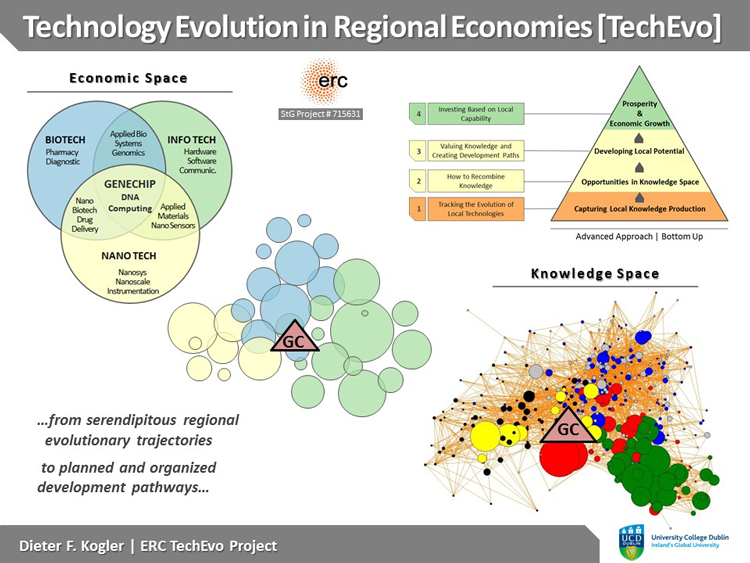TechEvo
Thursday, 7 December, 2023

Scientific and technological expertise acquired in the past strongly determines future development opportunities, but also sets limitations in this regard. While this applies universally, regardless if considered at the personal, corporate, or spatial level, it is of particular interest in the context of cities and regions given that these entities serve as containers of unique knowledge pools.
Places usually transition through phases of technology upgrading over time in an evolutionary rather than in an erratic way, which allows us to open up a window into the future, by looking into the past. The creation and accumulation of knowledge are processes at the heart of technological change and economic growth.
To date, attention has been directed at aggregate measures of knowledge production in regional and national contexts, but little consideration has been given to the properties of knowledge produced in specific places. How does the nature of knowledge that is produced vary over space, what conditions the scope of technologies generated in different locations, and how does access to these knowledge sets impact the performance of local firms and industries?
These are central questions that guide the research activities carried out by Dr Dieter F. Kogler who has recently been awarded a prestigious European Research Council (ERC) Starting Grant of €1.5 million to establish his own research team and to pursue ground breaking research concerning the role of technological change and its impact on economic development, growth and prosperity. He will receive this ERC funding over the next five years for a study entitled, ‘Technology Evolution in Regional Economies’, or TechEvo in short.
The scientific goal of TechEvo is to undertake a comprehensive investigation of why regions enter and exit scientific and technological knowledge domains based on their past activities (path-dependency), their regional characteristics (place-dependency), and their embeddedness in regional, national and international networks. It is anticipated that the TechEvo research project will provide ground breaking insights into how innovative entities and individual inventors are embedded in social and cognitive, local and non-local networks, and how regional technological change is shaped through entry, exit, and selection processes.

Overall, TechEvo aims to provide novel theories, methods and empirics that will significantly advance existing work and open up a new research frontier in science and technology studies, as well as support the development of new planning and forecasting tools for progressive strategic innovation policy.
In addition, the aim is also to develop an interactive online mapping and analysis tool. This tool will enable private and public entities, as well as policy makers, to identify current gaps and future opportunities in regional knowledge spaces and networks to support their quest for more effective and efficient local knowledge utilisation and technology evolution.
Dr Dieter F. Kogler's TechEvo project will produce economic indicators, models and tools for firms and policy makers, so they can make better location-based investment decisions to boost innovation and drive regional prosperity.